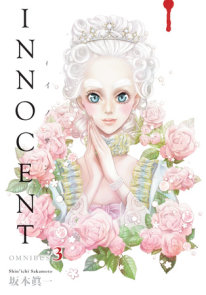READERS GUIDE
Introduction
A Note from Angel Wagenstein: The Shanghai ghetto: a little known page from the tragedy of the Jews during World War II. About thirty thousand refugees from Nazism, primarily German and Austrian Jews, sought asylum in Shanghai-according to a narrow statute still formally an open city, but in actuality under Japanese occupation. During these years, the great Far-Eastern port was a hub of economic, political and military interests, diplomatic intrigues and international spy rings. For the fugitives from Europe, Shanghai initially conjured up illusions of joyous salvation; under pressure, however, by their German allies, the Japanese authorities quickly transformed a shabby section of town into a dismal Jewish ghetto. There its new inhabitants-of whom the greater part were intellectuals-experienced all the brutality of Japanese militarism and the bitterness of humiliation. But also the forces of civilian courage, solidarity and intense human empathy.Although the subject of the novel is developed against the background of colliding historical events, its essential fabric is woven from actual human destinies, documented facts and those turbulent emotions-love and faith, hope and despair.
In Farewell, Shanghai, I have made use of rich archival material, including memoirs and personal contacts with surviving participants of actual events, various historical investigations, and repeated visits to China in search of traces of this Shanghai tragedy. Especially important material has been drawn from declassified secret intelligence archives, as well as recent research on the activities and the tragic end of the "Ramsay" espionage group, led by the legendary Soviet agent, Richard Sorge.
Questions and Topics for Discussion
1. What are some of the ways the Jews in Shanghai survive psychologically and maintain their dignity? Is humor one of their coping devices?
2. How do the Japanese and Chinese regard the Jews?
3. There is plenty of evidence for the "Law of Universal Disgustingness" in Farewell, Shanghai, but there are also numerous acts of unexpected kindness, generosity, and courage that undermine that law. Does the book give you hope despite its sometimes pessimistic tone?
4. Some of the more fragile characters survive while some of the strongest and most resilient break down. Why do you think this happens? Did the suicides come as a shock?
5. How does Farewell, Shanghai expose the "myth of Jewish solidarity"? Do you believe that Hitler and the Holocaust united Jews from around the world?
6. The narrator expresses cynicism about the leaders of governments in general. Does this seem accurate?
7. Farewell, Shanghai raises the question of whether Roosevelt knew in advance about the attack on Pearl Harbor. Do you think this may have been true? If it was, how do you understand his motivation for not acting on it?
8. Personal friendship overrides national and political allegiance in some cases in Farewell, Shanghai. What are the examples of this? In what sense do you find these ethical or understandable? In what sense do you find them objectionable?
9. What role does music play in Farewell, Shanghai?
10. Does the context of war create a moral ambiguity that produces some surprising actions, with decent people being forced to act against some of their principles while their cruel enemies sometimes act humanely? What seems to be the author’s attitude toward the moral challenges of war?
About this Author
Angel Wagenstein was born in 1922 in Plovdiv, Bulgaria, to a family of craftsmen. He grew up among the simple-minded, good-natured poor men in his neighbourhood: Bulgarians, Turks, Gypsies, Armenians, Jews, Albanians. Those early years instilled in him sympathy for all the ethnoses and intolerance against racism and social injustice.Wagenstein’s family immigrated to France for political reasons, where he tasted the misery of immigration to the full. They were granted amnesty and came back to Bulgaria. During World War II, under anti-Semitic laws, he was interned in a Jewish camp, which he fled to join the antifascist resistance. In a clandestine action, he was betrayed and detained by the authorities, put to merciless tortures, and sentenced to death. The sentence failed to be executed as the Soviet troops entered Bulgaria. As a volunteer, he took part in the last phase of the war against Nazi Germany.
Wagenstein has created some 25 film scripts, filmed in a number of European countries as well as in China and a number of documentaries. His triptych novel on the lot of European Jews in the 20th century, apart from Bulgaria, was published in Germany, France, Russia and the Czech Republic either entirely or as individual novels. It is slated to be published in English, Spanish and Hebrew.
Wagenstein is a member of the Union of Bulgarian Writers, the Union of Bulgarian Filmmakers and the Bulgarian P.E.N. He has been conferred highest prizes at international film festivals, literary awards of the Parisian Sorbonne, of the Union of Bulgarian writers, the German National Prize, and the Jean Monet European literary prize, among others. He was decorated by the French government with the National Order of Merit and the Order of Arts and Literature, while in Bulgaria he is holder of the highest orders and decorations.




















